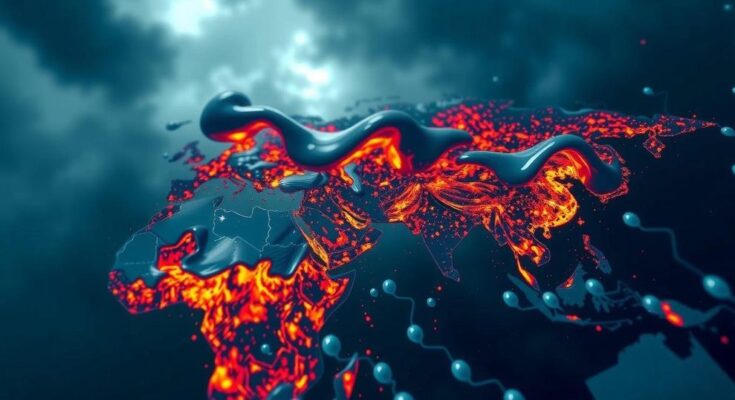A new analysis reveals that human-caused climate change has intensified the world’s ten deadliest extreme weather events over the last two decades, resulting in more than 570,000 deaths in Europe, Africa, and Asia. Researchers from the World Weather Attribution group established that climate change significantly contributed to the severity of these events, emphasizing the urgent need for political action to combat fossil fuel dependency and enhance climate resilience.
A new analysis conducted by scientists from the World Weather Attribution (WWA) group at Imperial College London reveals that human-induced climate change has significantly intensified the ten deadliest extreme weather events that occurred over the past two decades. These catastrophic events, which struck regions in Europe, Africa, and Asia, led to the loss of more than 570,000 lives. The analysis indicates that scientists can now identify the influence of climate change on complex weather incidents. The study reexamined data from the most deadly weather occurrences reported in the International Disaster Database since 2004, the year when the first research established a link between extreme weather and climate change. The findings highlight that the drought in Somalia in 2011, responsible for over 250,000 fatalities, was significantly exacerbated by climate change, which made the low precipitation conditions that precipitated this disaster more probable. Additional events analyzed include the 2015 heatwave in France, which caused over 3,000 fatalities and was found to be twice as likely due to climate change. The deadly European heatwaves of 2022, resulting in 53,000 deaths, and 2023, which took 37,000 lives, were deemed impossible without the influence of climate change. Furthermore, the researchers noted that the severe tropical cyclones impacting Bangladesh (2007), Myanmar (2008), and the Philippines (2013), along with devastating floods in India (2013), were all intensified by climate change. Significantly, the actual mortality toll from these events could be far greater, as heatwave-related fatalities are often underreported, particularly in developing nations. This critical analysis was published before the recent storms in Spain caused numerous casualties. The ability to link climate change to weather events is credited to the innovative work of WWA founders Dr. Friederike Otto and Dutch climatologist Geert Jan van Oldenborgh, who developed methods to quantify the impact of anthropogenic climate change on catastrophic weather scenarios. In summary, the study emphasizes the urgent need for countries to bolster their resilience against climate change as continued reliance on fossil fuels exacerbates extreme weather patterns. The evidence presented indicates that the rising global temperatures are directly correlated with increased severity and frequency of weather-related disasters, posing an acute threat to global populations.
The link between climate change and extreme weather events has become a crucial area of research in the wake of increasing incidents of natural disasters. Recent studies have demonstrated that climate change, primarily driven by human activities such as burning fossil fuels, is making extreme weather events more frequent and severe. The World Weather Attribution group is at the forefront of analyzing the impact of climate change on distinct weather occurrences, thereby providing valuable data that can inform climate policy and disaster preparedness strategies. This recent analysis exemplifies the pressing need for comprehensive measures to mitigate climate change and protect vulnerable populations from its devastating effects.
The analysis conducted by the WWA underscores a critical relationship between climate change and extreme weather events, highlighting the fatalities resulting from intensified natural disasters that have affected millions globally. The research reflects an alarming trend that indicates a need for immediate action from policymakers to transition from fossil fuels and to invest in climate resilience measures. As the climate continues to warm, the potential for extreme weather incidents to escalate remains a substantial threat, necessitating a proactive approach to protect lives and mitigate suffering caused by such events.
Original Source: www.bbc.co.uk




